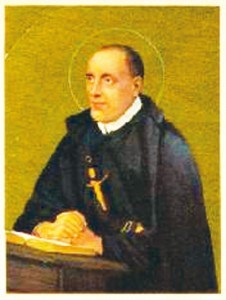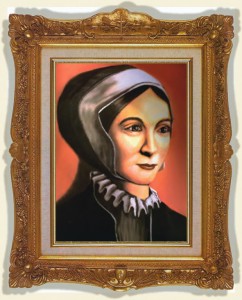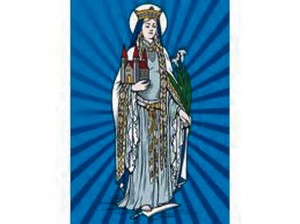March Saints
 Saint Clement Mary Hofbauer (1751-1830)
Saint Clement Mary Hofbauer (1751-1830)
Born in Tasswitz, Austria, in 1751, Clement Mary Hofbauer lived in turbulent times. When his father died in 1757, his mother stood him before a crucifix and said, “Henceforth, He is your father. Take care that you never grieve Him by sin.” This was the principle by which he lived.
As a child, Clement would gather the household together to say the Rosary, his favourite devotion. He fasted until nightfall on Saturdays in honour of the Blessed Virgin, and distributed to the poor food and money of which he deprived himself. Above all, he longed to be a priest, but he simply did not have the means. “Priests,” he said, “are the light of the world and the salt of the earth.”
Despite obstacles and persecution, he was ordained in 1785.
Initially, he was stationed in Vienna, but Emperor Joseph II set about closing religious foundations. Clement was sent to St Benno’s in Warsaw, Poland, to begin two decades of missionary labours. He preached, built orphanages and schools, and established a vast Redemptorist presence in the city. When Napoleon suppressed all religious institutions, Clement and the Redemptorists were imprisoned in 1808, each one then exiled to his own native land.
Clement went to Vienna, where he became chaplain of the Ursulines and pastor of the adjoining parish. He became known for his holiness and zeal. He founded a Catholic college and began to reform and revitalise the Catholic faith of Austria and Germany. His efforts aroused the ire of the powers-that-be to such an extent that he and his Order were relentlessly pursued and persecuted. He was placed under surveillance, held in confinement, forbidden to live with his brethren, had his mail intercepted and monitored. But when he preached, “the Holy Ghost spoke through his mouth”. He was silenced, but not cowed. Taken into custody yet again, and subjected to insulting interrogation, Father Hofbauer told his persecutors, “It is not good to be here!” and calmly walked out of the building.
In the midst of this torment and suffering, he continued to devote himself to hearing confessions and preaching. He developed an excruciating cancer of the bowel, which gradually sapped his health and vigour. The pain at times was such that, while in the confessional, he would try to stand to ease it. However, he would not slacken his arduous daily routine, nor would he in any way even hurry penitents during Confession. He contracted typhoid and smallpox, which resulted in his death in 1830 as the Angelus was ringing outside.
Saint Clement, let us not be led astray by false doctrine.
(Sources: Internet – various)
Margaret, daughter of Thomas Middleton, of York, became a Catholic soon after her marriage to John Clitherow. She was imprisoned for two years for recusancy, and opened her house as a refuge for priests, for which she was eventually arrested and charged. Maintaining that she was charged with no offence, she refused to plead and was sentenced to the barbarous death in that case made and provided – to be pressed to death by weights at York in 1583. Good-looking, witty and very merry, Margaret is one of the most attractive and moving figures among the English martyrs.
Saint Margaret, obtain for us the courage to live our faith totally.
Born of a noble, pious family, Saint Cunegundes was instilled with the faith from an early age. When she was of an age to marry, her parents chose for her spouse Saint Henry, Duke of Bavaria. With his consent, before their marriage she had made a vow of perpetual virginity, and the couple lived in the strictest union of heart, working together to promote piety and God’s honour in every sphere.
On recovery from a severe illness, she founded a Benedictine monastery at Kaffungen but, before it was finished, Henry died and Cunegundes became a nun. After this, she seemed to forget entirely that she had been an empress, and served as the last in the house, being persuaded that she was such, before God. She prayed and read a great deal, worked with her hands, and took singular pleasure in visiting and comforting the sick until her death in 1040.
Saint Cunegundes, teach us true poverty of spirit.


 Entries(RSS)
Entries(RSS)